Volume no. 11, Issue 2
click excerpt to view full work
on one side of the river
a city lives, the city lives on the other side with the grackle
the cottontail, the rattlesnake
each a foot in the mouth of the other
a screen of shaky aspen
waiting in the suddenness of the abundant brown river
cream foam and flapping cloth
I don’t say it enough—I’m proud of you
“Great Wealth” by Amie Zimmerman
▱
In the past, instead of using currency, the Kinnauri Tribal Peoples depended on pastoralism, such as grazing sheep and goat whose wool is woven into colorful textiles. They also bartered and engaged in subsistence farming for their survival, which provided a safety net in this harsh region. They ventured on trade migrations with their animal herds to their neighboring region of Tibet and back toward the Indian Plains. Vital to the local and regional barter economy, the Kinnauris brought wool, cumin, medicinal herbs, salt, goats, and sheep in exchange for essential goods such as grains, sugar, and cotton clothing. One of the main commodities with which the Kinnauris traded for these goods was the chilgoza pine nut, produced by a wild forested pine tree native to small pockets in Western Himalaya. The chilgoza pine is a robust tree that can endure harsh growing conditions, surviving in little soil and extreme cold and drought at high altitudes, but may not be able to survive modernization and climate change.
“From Vanishing Pine Nuts to Expanding Apple Trees: A Story of Changing Tribal Culture in the Himalaya” by Aghaghia Rahimzadeh
▱
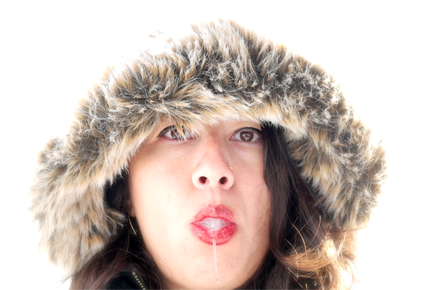
“Snow White” by Leanne Dunic
▱
The tree stood tall, as if puffed up by arrogance. It had no shadow, which spooked the king. It was out of joint, like a bad poem. He thought it looked more like a fierce ogre than like a tree. Then he saw the corpse, hanging down from the tree, its face distorted, and its thighs and feet distended. The king fancied that it belonged to a man who had turned away his face in shame, perhaps never having achieved anything or done good to anyone. He climbed the tree and cut the rope binding the corpse.
As soon as the corpse fell to the ground, it cried out in pain, “Hey! That hurt!” Thinking that the man must still be alive, the king climbed down speedily and began massaging the corpse’s limbs, cursing himself for his carelessness. This seemed to amuse the corpse, who laughed loudly. Just as the king was recovering from that shrill and piercing laugh, he noticed that the corpse had vanished. He looked up and found that it was again hanging from the tree, just as before, suspended from a rope! By now, the king had realized that a ghost inhabited this corpse. He climbed the tree again, hoisted the corpse—with the ghost—onto his shoulder, and marched off briskly.
The ghost liked to talk. “A trip without a story is boring,” he said, and proceeded to tell Vikrama a story, at the end of which he asked the king a riddle. “I should make it clear that if you know the answer but don’t tell, your head will split into a hundred pieces. If you do answer correctly, though, I’ll fly back to the rosewood tree. Choose wisely!”
“A Riddle-Loving Ghost Saves a King” translated from the Sanskrit by Brishti Guha
▱
My work is a corrective. I depict women to highlight the power they possess. To quote poet R.H. Sin, “She’s everything, even when she is treated like nothing.” Throughout history, women, especially black women, have borne the pain of giving life to both children and civilizations, and yet we are treated as secondary to men. In my work, women are primary; they are front and center; they are subjects with agency and power.
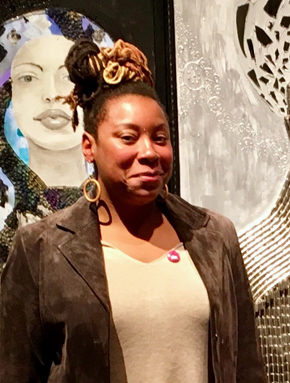
An interview with April Sunami
▱
During one of our chapel sessions Mr. G played “Bridge Over Troubled Water” and told us about depression. The word sounded like pressing and I pictured fingers or hands pressing down and making valleys in people’s souls. I’m not sure if that was what he meant but he said he was there for us if we needed someone to talk to. I wasn’t sure what that meant either but I did like listening to him. I thought about the bones under the floor below us and the bathrooms down there as well. Did the pipes go between the bodies? I wasn’t sure but Mr. G’s eyes were so blue.
“Falling In and Out” by J.L. Lapinel
▱
In the days before he left, my ex-boyfriend said something about the not-enough-ness of our sex that made me give myself to anyone who wanted me for weeks afterward. I felt like one of those grasshoppers that needs to drown in order to rid itself of a parasitic worm. I wouldn’t have put it to myself like that then—I read about it last week in one of Theo’s bug books. Spinochordellis tellini lies dormant in the host’s body until it’s ready to mate, at which point it coerces the insect to drown itself in a swamp, returning the parasite to fecund mating ground.
“Brittle Ecologies” by Emily Finan
▱
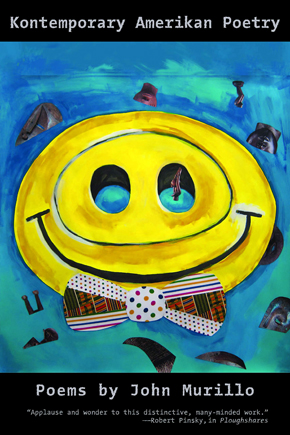
Murillo’s poetics are not, thereby, invested in testimonial inasmuch as emancipatory politics; they’re not about speaking truth to inasmuch as the coming of power. Rarely do you read a book with so much love and fury all at once, and rarely does poetry leave you with a simultaneous sense of urgency and forbearance.
“Kontemporary Amerikan Poetry” by John Murillo
▱
I caress his disquiet, say
it looks like mine. Identity
is a virtue? I afford another
dawn. I strip off layers. I
salve minor horrors. You call
me your patient. The body is
the mind’s patient, a disquiet pair.
“Exercise in Patience” by Krysta Lee Frost
▱
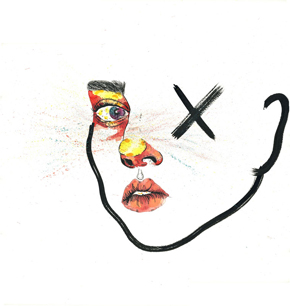
“Wide Eye 11” by Janelle Cordero
▱
You can’t stop thinking about the bomb. You want to write an angry novel about the camps, but you know you can’t write an angry novel about the camps without thinking about the bomb. You’ve only ever been able to see the blast in black and white, like celluloid through a clicking projector. You see the mushroom cloud—immense, alien, impossible—curling over all that had been the city of Hiroshima, your ancestral home.
“You Can’t Stop Thinking About the Bomb” by Christopher Berardino
▱
I think the role of identity in my poems is largely rooted in the insecurities and self-consciousness that came from being a young girl who found herself in a woman’s body. I was over five feet tall with large breasts and curves in fifth grade. I noticed and observed the way boys, other girls, men, and women looked at me. And beyond that, I internalized what I thought those glances said about me, what they meant about the person I was and could be. I think this experience of being sexualized and objectified at a time when the brain isn’t capable of knowing what to do with that information is unique to female-bodied people. It shapes how we see ourselves and how we imagine ourselves in the eyes of those around us. I’m not sure I’ll ever be able to turn off that voice inside my head and I think I owe it to myself and other women/femme-identifying poets to put that voice down on the page.
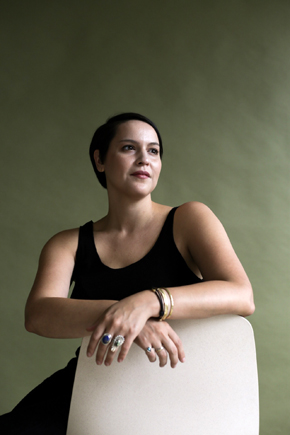
An interview with Eloisa Amezcua
▱
یک شب آتش در نیستانی فتاد
سوخت چون عشقی که بر جانی فتاد
شعله تا سرگرم کار خویش شد
هر نی ای شمع مزار خویش شد
One night, fire fell into a reed bed
It burned like love falling onto a soul
As fire’s head warmed to its work
every reed turned into a candle at its own grave
“Fire in the Reeds” by Majzoob Tabrizi translated from the Persian by Bänoo Zan
▱
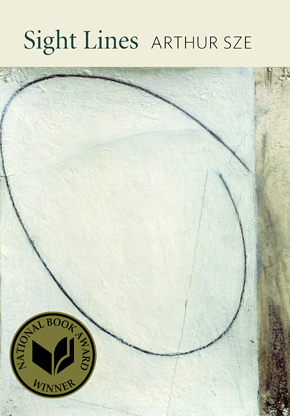
What is beautiful and in peril extends to the cosmos. By using a dash between one image and the next, Sze implies that some connective tissue has been left out. He asks the reader to make the leap and see the abutting images as analogy and trusts the reader to draw connections.
“Sight Lines” by Arthur Sze
▱
The highway to the third mainland bridge calls your name from the kitchen balcony. From there you can see the ship lights in the distance and smell the sea and the souls she has swallowed. It is almost poetic—if you can ignore the uneven road and the rivers in the middle of the road, and the refuse dumps along the road. Your first night in the new apartment feels like heaven. It’s just a lot of space with two tiny windows and a balcony view that’s not worth viewing but, in the land of the blind, the one-eyed man is king.
You light seven candles again and thank your ancestors’ gods for their kindness.
On the third night in the new house, when you awake in the middle of the night, to sounds of clashing knives and the boom boom sound of shotguns behind your window, you remember your mother’s god as you shiver and pee in your pajamas, in a corner of your oversized room, on Cemetery street, Lagos mainland.
“How to Get a Good Apartment in Lagos” by Olakitan Aladesuyi
▱
And then was all very
public and medical and
counted and dew-damp,
nightstand, glass feet,
ok a body.
“Sick” by Rachel Mindell
▱
Ali is healing at the end of the story because she has control over the narrative. It’s not being done to her. She is making the choices.
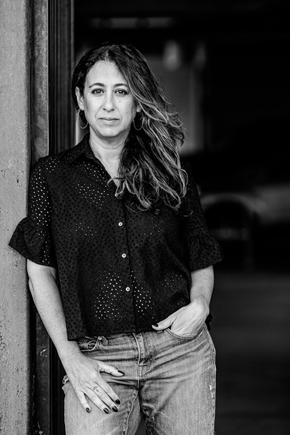
An interview with Hayley Krischer
▱
Several years after I started my first press, news outlets commit coverage to the fact that, in the United States, e-book sales have not outpaced those of physical books, as had been expected. Instead, reporters find that readers have gravitated toward publications with more artisanal aspects. They call this tendency a symptom of nostalgia in the face of obsolescence, say it is reflective of a larger craft movement, and report that small press culture accounts for the literary market that has grown most since the advent of the e-book.
The lines on my self-healing cutting mat have bled where I passed the bone folder over them in the production of the fourth book.
My thumb cramps.
I read for a few hours and remember I love it.
“On the Making of Books” by Stephanie Sauer
▱
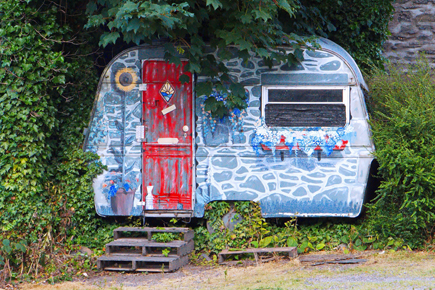
“Home Sweet Caravan” by kerry rawlinson
▱
I pressed my notebook into the pillow on my lap and chewed on the cap of my pen. I didn’t look over at John very often. I copied down his words, visually slurring them, and they seemed real enough to me, at times even inspirational: “Keep praying for a better America,” he had written, “and for the preservation of the rational parts of our civilization.” How undone could the author of such a sentiment really be?
But I took a picture of John during that bus ride, and in it I can see things that I most likely would have forgotten by now, if I had ever registered them in the first place. John was scruffy, but not as dirty as he could have been, considering. A cream-colored scarf rose out from underneath his navy blue windbreaker, and his wrists were cradled in the ripped cuffs of a navy blue ribbed turtleneck. His hands were dry, rough, and large, and they scared me, which made me feel guilty. His skin was ruddy and loose, hanging off the bones of his face. His moustache was neatly trimmed. His eyebrows were white pitched roofs. His smile was endearingly lopsided, the whites of his eyes were pink, and what must have once been the clear blue sky of his eyes—a big, Midwestern sky—was now clouded over with cataracts.
“Song of the Open Road” by Sarah Heady
▱
This was how my mother expressed her love: through actions and doing; not words, despite the fact that she loved poetry. One of her favorite things to say was, “Saying I love you doesn’t put food on the table.” My mother was more comfortable cooking my favorite foods and having flowers around the house, like the men in Bailey’s life. It took me and Bailey a long time to realize that these acts of service were synonymous with the words themselves.

An interview with Leslie Hooton
▱
Multigrain Cheerios. Soap! Hands. Sit up. Dad’s home. “He can’t go into work anymore,” Different books for different rooms. Adventure Zone Bible. Face cleanser. Fox News. History lectures at the kitchen/dining/homework table. Hands. First radio. History Channel. “Nothing goes on top of the Bible,” “But my stuff will fall,” “No it won’t,” “But Mrs. Wright gravity,” “Nothing goes on top of the Bible.” Adventure Zone Bible but with the spine cracked. His hands.
“A Short List Explaining Why I’m An Okay Person” by Kat L’Esperance-Stokes









